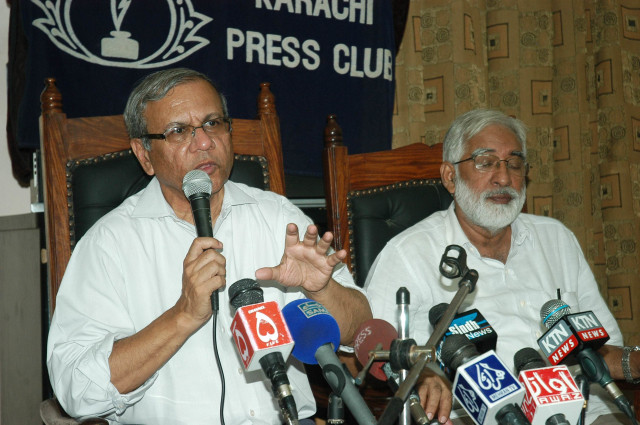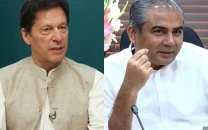Devolution plan: ‘Recentralisation attempts will damage political equilibrium’
Dr Bengali says the struggle for Pakistan initially began with struggle for regional autonomy, lose federalism.

Any attempt for recentralisation will damage the political equilibrium of federation, as the 18th Amendment empowers provinces to thresh out their own planning and strategies and they have to protect their autonomy through proactive policies.
This was said by renowned economist and head of the Balochistan Chief Minister’s Policy Reforms Unit Dr Kaiser Bengali while speaking at a lecture on “Political Economy of Fiscal Federalism”, organised by the Pakistan Study Group on Federalism. The lecture was hosted at the National Institute for Historical and Cultural Research at Quaid-e-Azam University and attended by a large number of faculty members, experts and students.

Dr Bengali said that the struggle for Pakistan initially began with struggle for regional autonomy and rights within an independent, united India. “Under this scheme, a tri-zone federation was conceived with [today’s] India, Pakistan and Bangladesh as its constituents. However, the continuous contest between the Congress and Muslim League led to the partition of India in 1947 and the same quest for autonomy led to the truncation of Pakistan in 1971,” he said.
While talking about the formative phase of Pakistan, Dr Bengali traced the origins of the centralist mindset to the ruling elite, who had mostly migrated from India. He said they constituted eight per cent of the population, but were able to push through a centralised, rather than a federal state.

“The Mohajir ruling elite of initial years of Pakistan had no interest in federalism, democracy or constitution and the efforts for elections and constitution-making remained a low priority for them,” Dr Bengali said, adding that there was a transition of power from the Mohajir elite to the Punjabi elite in later years and both have a tendency towards concentration rather than redistribution of power to different regional actors.
“Federalism was denied continuously by Mohajir-Punjabi-military nexus and resulted in politics of dissidence by Sindh, Balochistan and Khyber-Pakhtunkhwa,” he explained.
“The 7th NFC Award and the 18th Constitutional Amendment are two key reforms introduced through political consensus which have dismantled, to a great extent, the centralised state structure of Pakistan.” Dr Bengali said.
“This is still a constitutional framework which is in the process of implementation. The struggle to protect the 18th Amendment and reverse the same is on, even today. The centrists’ tendencies in politics, bureaucracy and academia are creating arguments for recentralisation, which would only damage evolving federalism in Pakistan,” Bengali warned.
Responding to a question, Dr Bengali floated the idea of establishing provincial planning commissions to effectively use the planning, policy, fiscal and legislative spaces provided by the 7th NFC and the 18th Amendment. He also endorsed the demand for new provinces and said that the establishment of ‘provincial senates’ would also help address intra-province issues.
“Balochistan won the case of equal ownership of its resources and we are on a positive path, thanks to the 18th Amendment and the 7th NFC Award,” he said.
While talking about the 8th NFC Award next year, Dr Bengali apprehended that the federal government may try to encroach upon the fiscal space of provinces, while interprovincial solidarity will be required to protect the fiscal autonomy provided by the 7th NFC Award.
Published in The Express Tribune, December 4th, 2014.


















COMMENTS
Comments are moderated and generally will be posted if they are on-topic and not abusive.
For more information, please see our Comments FAQ